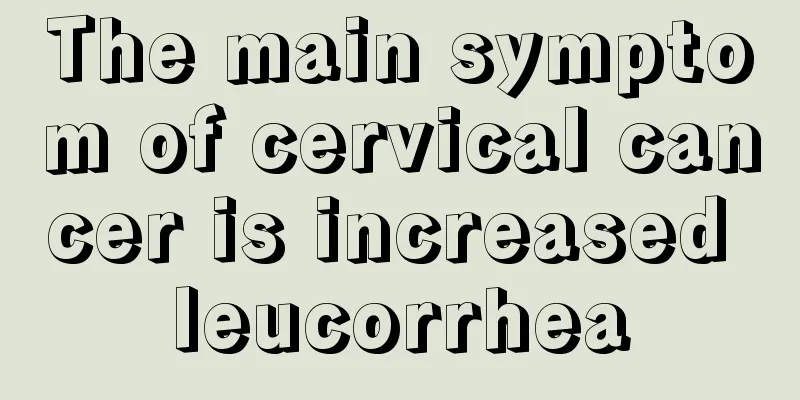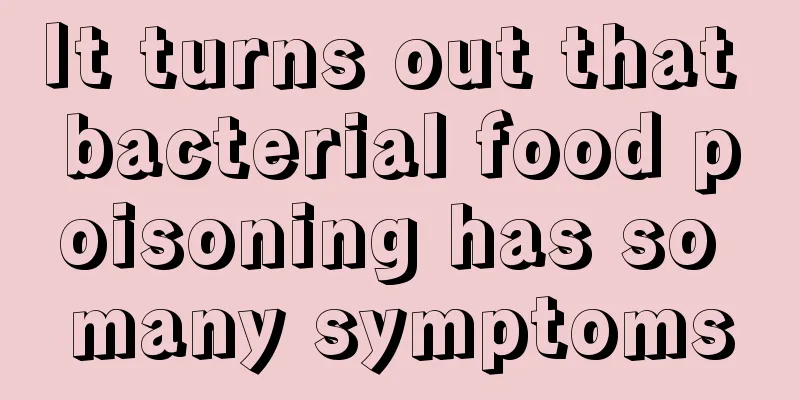How painful is chemotherapy

|
Chemotherapy is a way to treat major diseases. While treating the disease, chemotherapy also causes great harm to the body, which makes many patients fear chemotherapy. Many people call chemotherapy a poison. Chemotherapy mainly kills cancer cells in the patient's body through chemotherapy drugs and inhibits their growth to achieve the effect of curing the disease. So how uncomfortable is chemotherapy? The reason why chemotherapy is regarded as poison is that it causes people to suffer due to its side effects. But what cannot be ignored is that, up to now, chemotherapy has a history of more than 60 years. With the continuous progress of medicine, the research on chemotherapy has also been deepening, which has led to tremendous changes in chemotherapy drugs. The three most obvious ones are: improved efficacy, reduced side effects, and the ability to treat a wider range of tumor types. The side effects of chemotherapy are not as serious as imagined. The most common reaction is gastrointestinal reaction, such as nausea and vomiting. Many people will describe that they can even vomit bile, but in fact, there are now many antiemetics and stomach protective drugs. After proper use, vomiting can be relieved. In addition, many chemotherapy drugs are now being developed that do not cause severe gastrointestinal irritation. Drugs such as gemcitabine and oxaliplatin are widely used. Another serious reaction to chemotherapy is bone marrow suppression. It is the chemotherapy drugs that affect the white blood cells, platelets, and red blood cells. This side effect is the most important, but now many blood count-raising drugs, white blood cell-raising injections, etc. have been developed. After reasonable treatment, the adverse reaction of bone marrow suppression can also be resisted. Some other adverse reactions, such as liver and kidney damage, cardiopulmonary damage, phlebitis, peripheral neuritis, etc., relatively speaking, do not have as great an impact on the human body as gastrointestinal reactions and bone marrow suppression. After proper treatment, there can be good relief. On the contrary, the most difficult thing should be the dietary adjustment that seems to be the simplest. From a nutritional point of view, we want to supplement patients with sufficient nutrition to maintain their physical and immune functions. is the most difficult. Here are 6 things to do. If you can do one more, do it: 1. The dietary principle is high protein, rich in vitamins and sufficient calories. During chemotherapy, patients have poor appetite, gastrointestinal reactions, and are most nutritionally deficient. Therefore, at this time, you need to replenish your essence and try to eat high-protein, high-vitamin, and high-calorie foods. At the same time, the food should be soft and eaten in small meals. If nutrition is insufficient, the patient also needs intravenous infusion to supplement glucose, vitamins, amino acids, albumin, etc. 2. Treatment of bone marrow suppression and decreased blood count Chemotherapy drugs can affect bone marrow regeneration and cause a decrease in white blood cells. After the white blood cell count decreases, patients should pay attention to consuming an additional 50% protein in their diet, because protein is the basic synthetic substance for immune cells. More supplementation is beneficial to the improvement of white blood cells. Specific foods include fish, soy products, milk, pig's trotters, sea cucumbers, animal livers, walnuts, peanuts, dates, seafood, etc. You can also eat more five black foods: such as black sesame, black rice, black beans, black dates and so on. Traditional Chinese medicine believes that "black can enter the kidneys" and eating more can nourish the kidneys and fill the marrow, which is beneficial to improving blood counts. 3. Treatment of gastrointestinal adverse reactions Chemotherapy drugs can damage the gastrointestinal mucosa, causing nausea, vomiting, decreased appetite, poor appetite and other reactions. The food should be soft and eaten in small and frequent meals. If vomiting is severe, you can try drinking ginger juice. In addition, you need to eat more appetizers, such as hawthorn, yam, white radish, etc. You can also eat more soups and porridges, such as crucian carp soup, rice soup, porridge, etc. If you have ulcers, it is recommended to use honey plus vitamin C to relieve the symptoms. 4. Treatment for low immunity Among patients undergoing radiotherapy and chemotherapy, immunity is the most common problem. Various complications arise on the basis of low immunity, and the body becomes worse and worse, forming a vicious circle. Therefore, we should pay attention to improving immunity and consume more protein on a regular basis, as this is the basis for the synthesis of immune cells. Eat more fish, seafood, shrimp, soy products, etc. Some nutrients that help boost immunity should also be supplemented, such as the trace element selenium, vitamin E, β-carotene and other strong antioxidants. These three combined in a specific proportion can boost immunity and improve physical fitness in a short period of time. Patients undergoing chemotherapy often take some malt selenium supplements, also known as Selenium Weikang on the market. This is a common immune-enhancing product. It mainly supplements selenium, which can maintain the activity of lymphocytes, stimulate the formation of immunoglobulins and antibodies, increase the phagocytic ability of macrophages by 2 times, and prolong the life of white blood cells. 5. Treatment of liver, kidney, heart and lung damage Liver damage is quite common. If the transaminase level soars, you can drink crucian carp soup stewed with Schisandra chinensis and wolfberry. Eat more fungi, bitter gourd, mung bean sprouts, asparagus, Agaricus blazei and other foods on a daily basis. If kidney damage occurs, you should drink more water, eat more fruits and vegetables, or alkaline foods, but be careful to limit protein intake. If edema occurs, you should pay attention to eating more animal liver and kidneys, and some foods that are rich in water and have diuretic effects, such as watermelon, cucumber, winter melon, etc. |
>>: Why is chemotherapy painful
Recommend
Why is my tongue a little numb?
The tongue is the most important taste organ in t...
What are the effects, functions and contraindications of Spirulina?
Spirulina actually has high health benefits and c...
What is osteosarcoma? You can learn more about it
There are many types of cancer, and osteosarcoma ...
What can’t you eat during the dog days of summer?
The air is very humid and the temperature is very...
What are the conventional treatments for fibroids?
Fibroids generally grow slowly, most of them are ...
What are the precautions for electricity use in summer
We can easily find a phenomenon, that is, there a...
The most common health care for uterine cancer in daily life
Among the diseases in the oncology department, ut...
Symptoms of egg rejecting sperm
The egg rejecting sperm is the main factor leadin...
What medicine can help me get rid of alcohol
Being drunk is actually a very uncomfortable stat...
What are the hazards of rat urine to humans?
Speaking of mice, I believe everyone is familiar ...
How to clean cosmetic cotton
Cosmetic cotton pads have many uses, the biggest ...
Red bumps on the body hurt
When red pimples appear on a person's body, i...
What are the treatments for lung cancer? Introducing several main treatments for lung cancer
Early stage lung cancer is the easiest to treat. ...
How to deal with my husband having an affair
A long-term marriage relationship requires the jo...
Does eye pain mean brain cancer?
Is eye pain a sign of brain cancer? 1. Intracrani...









